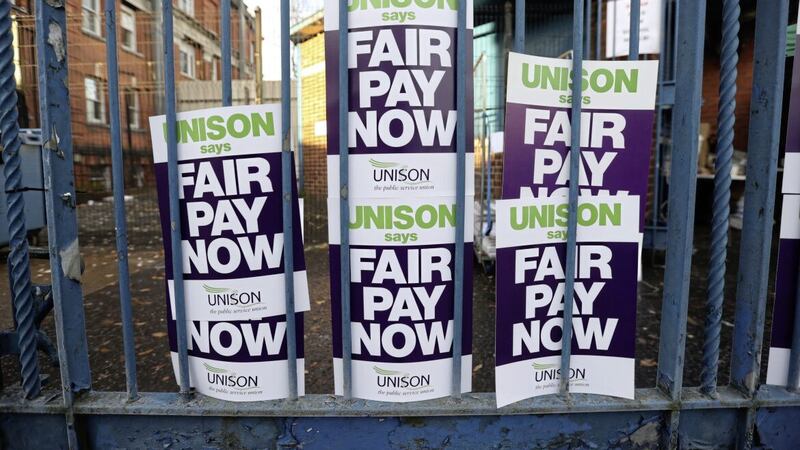I am old enough to remember when we were promised a brave new world with the advent of new technologies that would revolutionise the workplace.
Tech, we were told, would manage the drudgery, leaving us the bits which required intelligence and skill.
This new industrial revolution would transform our lives, giving us more leisure time, more time to pursue the things that made us tick as human beings, more time for friends and family.
We were sold a dream, but now we are living with the grim realities.
I’m reminded of the story of a guy who was met at the Pearly Gates by St Peter with an offer to try Heaven and Hell before deciding where to spend eternity.
Heaven was lovely. Angels played harps on fluffy clouds, there was an endless supply of milk and honey, and the inhabitants read Proust, played canasta and went to bed early.
Hell was a little different.
Satan showed him into a room where Louis Armstrong was playing jazz and people were drinking martinis; James Dean was dancing with Marilyn Monroe, and Hurricane Higgins challenged him to a game of snooker.
“Looks good,” he thought to himself.
“I’ll take Hell,” he told St Peter. “Heaven looks a little dull.”
When Satan showed him back into the room, the damned were screaming in a pit of molten magma.
“But the jazz? Martinis? The celebrities?” the condemned man stammered.
“That was marketing,” the devil said, pushing him into the flames.
He had been sold a pup. And so it is with us. The much promised four-day week is a fable. Today, many in work are struggling to make ends meet. The working poor (including people doing critical jobs such as nursing and teaching) are on benefits and turning to food banks to feed their families.
Many are on contracts which give them little control over the hours they work. They don’t know their hours from one week to the next, and they are expected to be in at the drop of a hat if needed.
Staffing is often so tight that there are not enough people to do the work available, so those who are in end up doing the work of two people or more. This is a particular issue in retail and hospitality.
But people in other sectors will recognise the scenario.
The clear division between work and home has gone for most – even without the pandemic and lockdown. Working at home (as well as from home) has become all too common, with evenings and weekends often now spent catching up on stuff that could not be done at work.
The consequences for society are clear.
Growing levels of mental ill-health are the direct result of people being unable to ‘switch-off’.
Stress, which has a direct impact on our mental and physical well-being, is a consequence of people having little or no control over their lives.
The link between poverty and ill-health is unquestionable – as is the link between poverty and educational underachievement, leading to a lifetime of disadvantage.
It must be said that many – but not all – who were better off turned a blind eye to the impact of this technological disruption. But now this ‘brave new world’ is being felt by the middle classes as well as the working classes.
Nurses, firefighters, barristers, and academics are on picket lines alongside railway workers, and council workers. Just a few years ago strikers’ actions would have been criticised by those affected.
Not today. People know they are all in it together. Support for strikes is strong, and will remain so while governments fail to deal with the stark inequalities which exist between us.
The worm has turned. People know that the only people getting richer on the back of technological disruption are the wide boys (most of them are boys) who control the technology companies, the city institutions and the politicians prepared to facilitate deregulation which makes the rich richer and the poor poorer.
Half of the world’s wealth is now in the hands of just one per cent of the world’s population. Oxfam reported last year that the top 10 richest men in the world have a combined wealth which is more than that of the bottom 3.1 billion.
Such inequality – and in some of the so-called richest nations in the world – is unsustainable.









